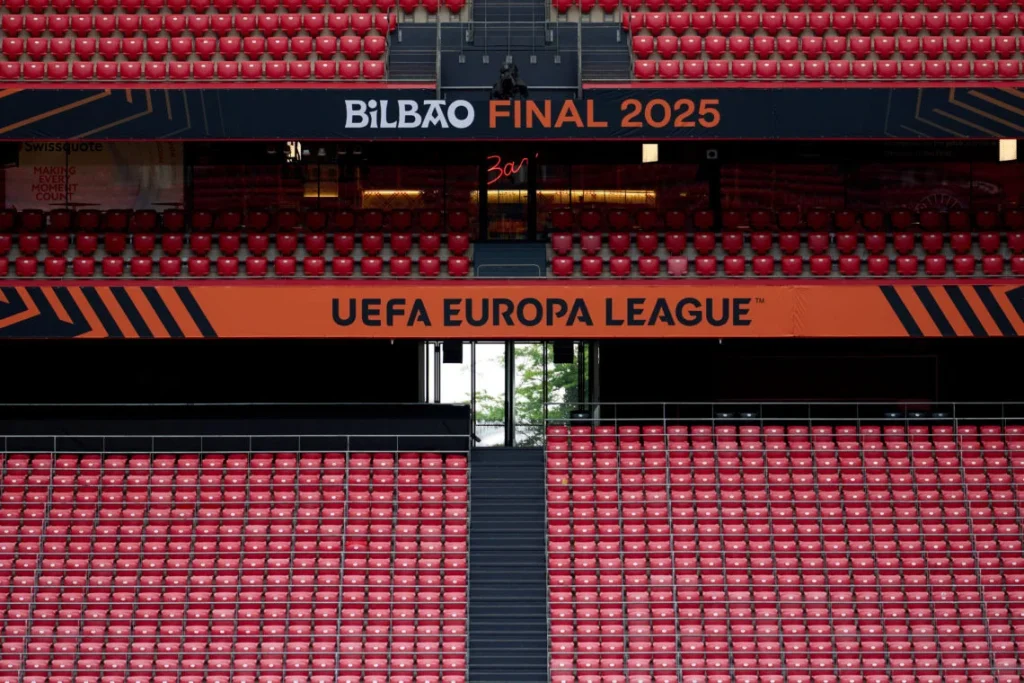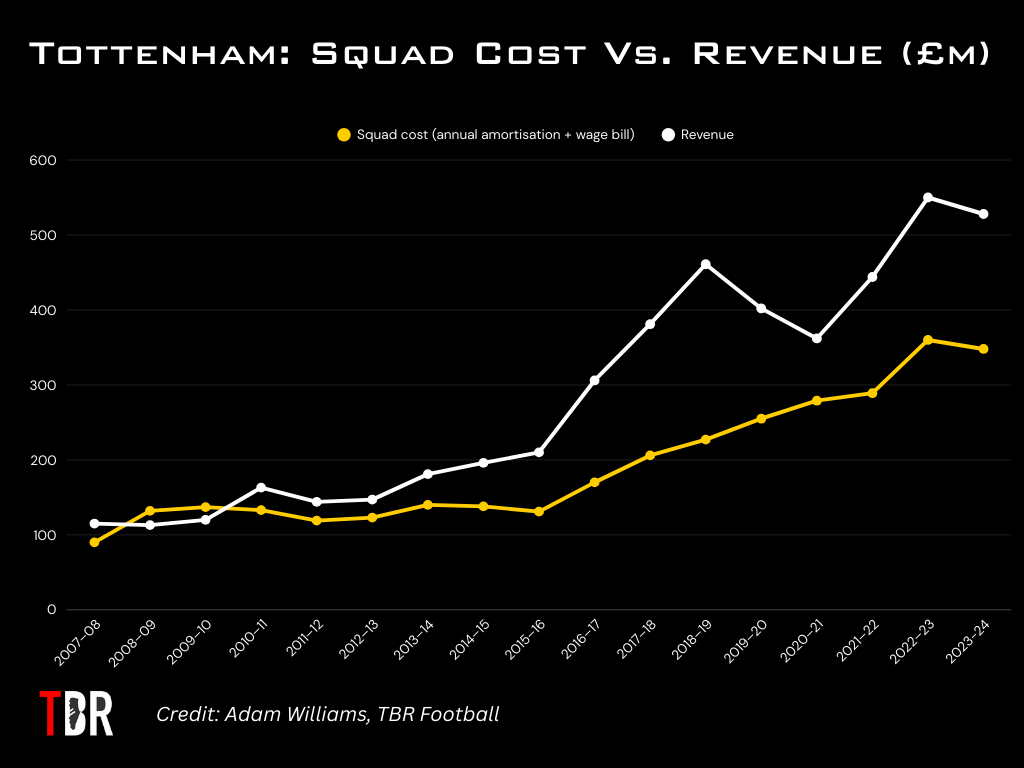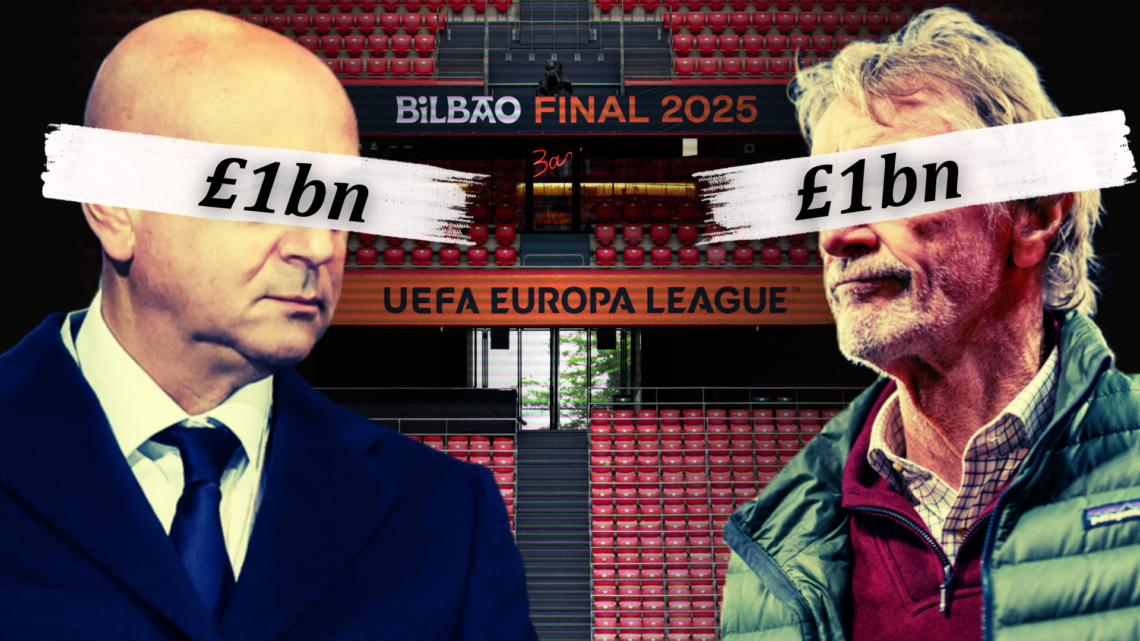The Europa League final between Tottenham Hotspur and Manchester United is more than just a battle for silverware—it’s a financial lifeline, a reputational rescue mission, and a defining moment for two of England’s most storied clubs.
While the trophy itself carries prestige, the ripple effects of victory extend far beyond the pitch, shaping transfer budgets, stadium ambitions, and long-term strategies.
For Tottenham, this final represents a chance to end a 17-year trophy drought, transforming a historically poor Premier League campaign into a season remembered for glory rather than disappointment. Manchester United, meanwhile, enter the match not in pursuit of their usual grandeur but in desperate need of redemption.
Both clubs have endured dismal domestic campaigns, languishing near the relegation zone with fewer than 40 points—a shocking reality for teams of their stature.
The immediate prize for the winner is clear: qualification for next season’s Champions League. But the financial implications run deeper than mere prestige.
Under UEFA’s revamped 36-team format, the Champions League has become a cash cow, with guaranteed earnings exceeding £50 million before a single match is played. Performance-related bonuses could push that figure past £100 million—a transformative sum for either club.

This financial boon is particularly crucial given the constraints of the Premier League’s Profit and Sustainability Rules (PSR). Manchester United, under Sir Jim Ratcliffe’s INEOS ownership, has been cutting costs aggressively, slashing jobs and raising ticket prices to balance the books.
A Champions League windfall would provide much-needed breathing room, allowing for squad investment without the need for drastic player sales.
Tottenham, while not under PSR pressure, operate under a self-sustaining financial model. Champions League revenue would supercharge their transfer budget, enabling them to compete with Europe’s elite in the market.
For chairman Daniel Levy, victory in Bilbao would validate years of cautious spending and infrastructure investment, including their state-of-the-art stadium.
The Broader Financial Landscape: Premier League’s Billion-Pound Matchday Boom
Beyond UEFA’s prize money, the Europa League final will have a cascading effect on both clubs’ matchday revenues. The Premier League is on the verge of smashing an unprecedented financial milestone—total matchday income across the division is projected to exceed £1 billion for the first time.
Tottenham and Manchester United stand at the forefront of this trend. Spurs’ £1.2 billion stadium has already proven to be a game-changer, generating £106 million in matchday revenue last season—a figure that could rise significantly with Champions League football.
Manchester United, despite Old Trafford’s aging infrastructure, still led the league with £137 million in matchday earnings. Their proposed new 100,000-seat stadium could further cement their financial dominance.
With Crystal Palace’s FA Cup victory ensuring at least nine Premier League teams in Europe next season, the league’s financial power continues to grow. Everton’s impending move to a new stadium and Leeds United’s promotion add further weight to the division’s revenue surge.
For the winner of the Europa League final, the summer transfer window becomes an opportunity for reinvention rather than firefighting. Without Champions League football, both Tottenham and Manchester United would be forced into a sell-to-buy approach, offloading key assets to fund reinforcements.
Tottenham’s financial stability means they are under no immediate pressure to sell, but Champions League qualification would allow them to target higher-caliber signings. Manchester United, meanwhile, could finally accelerate Ratcliffe’s rebuild, with additional funds easing their PSR concerns.
The loser, however, faces a far bleaker reality. Europa League football offers a fraction of the financial rewards, meaning tougher decisions in the market. Player sales would become inevitable, and ambitious transfer targets could slip away.

While finances dominate the narrative, this final is also about legacy. For Tottenham, lifting a major trophy would vindicate years of near-misses and solidify Ange Postecoglou’s project.
For Manchester United, victory would offer a glimmer of hope amid years of mismanagement, proving they can still compete at the highest level.
The stakes could not be higher. Bilbao’s San Mamés Stadium will host not just a football match, but a turning point for one of these clubs.
The winner secures financial security, European prestige, and a brighter future. The loser faces another season of uncertainty, scrambling to close the gap on their rivals.
As the final whistle blows, only one team will emerge with their season salvaged. The other will be left to ponder what might have been—and how much further they have to go.
When Tottenham and Manchester United step onto the pitch in Bilbao, they won’t just be playing for a trophy. They’ll be fighting for financial survival, transfer market leverage, and a chance to rewrite their season’s story.
The Europa League final is more than a game—it’s a pivot point, a moment that will shape the future of both clubs for years to come.
For the fans, the players, and the decision-makers behind the scenes, this is the match that changes everything. The question is: Who will seize the moment?

